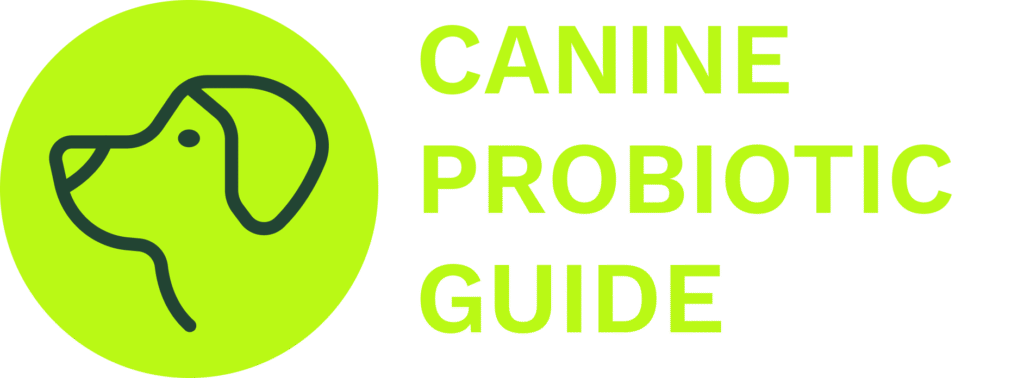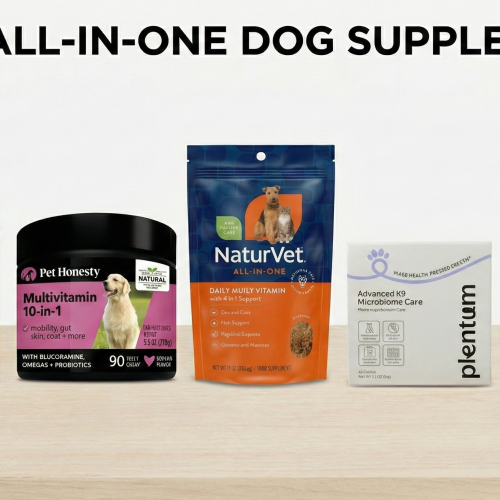The relationship between seasonal changes and canine gut health is more complex than simply determining whether dogs need “more” probiotics in summer or winter. Research reveals that both seasons present unique challenges that may benefit from targeted probiotic support, with individual dogs responding differently based on environmental stressors, dietary changes, and immune system demands.
Understanding Seasonal Gut Microbiome Changes
Seasonal variations significantly impact gut microbiome composition across multiple animal species, including mammals. Studies on laboratory mice demonstrate that changing day length and temperature—mimicking summer and winter conditions—can alter gut microbiome composition even when dietary content remains constant. The research showed significant differences in cecum and large intestine microbiomes between summer and winter-mimicking conditions, with predicted seasonal changes in several metabolic pathways.
Temperature emerges as a key factor influencing gut microbiome stability. Research examining temperature effects on animal gut microbiomes indicates that extreme temperatures can disrupt microbial communities, potentially leading to both beneficial and detrimental effects on host phenotypes. These temperature-induced changes may impact colonization resistance, host energy and nutrient assimilation, and overall life history traits.
Wildlife studies provide compelling evidence for seasonal microbiome plasticity. Golden snub-nosed monkeys showed distinct seasonal gut microbiome patterns, with high diversity and enrichment in plant secondary compound metabolism during summer, while winter microbiomes were enriched with enzymes for lichen polysaccharide degradation. Similarly, great tits demonstrated higher gut microbiome diversity during winter, with significant compositional differences between winter and summer communities.
Winter Challenges: Immune System and Vitamin D Deficiency
Winter months present unique challenges for canine health that may increase probiotic needs. Vitamin D deficiency becomes particularly problematic during winter months due to reduced sunlight exposure. While dogs cannot synthesize vitamin D cutaneously like humans, they rely entirely on dietary intake, and seasonal vitamin D deficiency has been documented in dogs with chronic enteropathy.
Low vitamin D status correlates with systemic and gastrointestinal inflammation in dogs. Research shows that dogs with chronic enteropathies often have low serum 25-hydroxyvitamin D concentrations, which associates with increased inflammatory markers. This connection suggests that winter vitamin D deficiency may compromise gut barrier function, potentially increasing the need for probiotic support.
Winter stress factors can significantly impact canine gut health. Studies on seasonal variations in humans reveal that gut microbiome composition changes during winter months, with reduced beneficial bacteria and altered metabolic pathways. Similar patterns likely occur in dogs, particularly those experiencing reduced activity levels, dietary changes, or increased indoor confinement during winter months.
The immune-gut axis becomes particularly important during winter. Research demonstrates that seasonal changes in circulating endocannabinoidome mediators correspond with gut microbiota alterations. Lower circulating levels of beneficial compounds during winter months coincide with reduced beneficial bacterial families like Bifidobacteriaceae and Lachnospiraceae, while potentially harmful families increase.
Summer Challenges: Heat Stress and Seasonal Allergies
Summer heat stress presents distinct challenges for canine digestive health. Studies on meat rabbits demonstrate that high ambient temperature and humidity can trigger gut microbiome disturbances, reduce antioxidant defense, and increase inflammation risk. Similar physiological responses likely occur in dogs, particularly those with thick coats or brachycephalic breeds susceptible to heat stress.
Seasonal allergies peak during summer months, creating increased probiotic needs. Research shows that pruritic dermatitis and allergic conditions in dogs are closely linked to gut microbiome alterations. A randomized controlled trial found that probiotic supplementation significantly improved pruritic dermatitis symptoms in dogs, with clinical differences supported by beneficial changes in gut microbiota composition.
Dogs with allergic conditions show distinct gut microbiome patterns compared to healthy dogs. The study revealed that allergic dogs had reduced gut microbiota diversity and altered composition, with differences remaining stable over time. This suggests that dogs with seasonal allergies may require consistent probiotic support, particularly during peak allergy seasons.
Summer dietary changes may also impact gut health. Increased outdoor activities and dietary variations during summer months can disrupt established gut microbiome patterns. Research on canine gut microbiota shows that when diet and environmental conditions change repeatedly, the microbiota also changes substantially, requiring time to stabilize.
Individual Variation and Breed Considerations
Individual dogs demonstrate significant variation in seasonal microbiome responses. Research on healthy dogs receiving synbiotic supplementation revealed individualized responses, with some dogs showing dramatic improvements while others experienced minimal changes. This variability suggests that seasonal probiotic needs may require personalized approaches rather than universal recommendations.
Age appears to influence seasonal probiotic requirements. Studies show that gut microbiota development in young dogs is influenced by maternal, environmental, and host factors, with composition quickly evolving during early development. Senior dogs may require different seasonal support compared to adult dogs, particularly given their potentially compromised immune systems and increased susceptibility to environmental stressors.
Breed-specific considerations may impact seasonal probiotic needs. Brachycephalic breeds face increased summer heat stress risks, potentially requiring enhanced digestive support during warm months. Working dogs or those with high activity levels may benefit from consistent probiotic support regardless of season, as physical stress can impact gut microbiome stability.
Evidence-Based Seasonal Probiotic Strategies
Rather than focusing on quantity differences between seasons, optimal probiotic support should address season-specific challenges. Winter support might emphasize immune-modulating strains that help compensate for vitamin D deficiency and reduced immune function. Research shows that specific probiotic strains can enhance immune responses and reduce inflammatory markers.
Summer probiotic strategies should focus on heat stress mitigation and allergy support. Studies demonstrate that certain probiotic formulations can reduce stress-related digestive upset and support dogs experiencing environmental allergies. Multi-strain formulations containing immune-modulating species may provide superior benefits during high-stress summer months.
Consistency emerges as more important than seasonal dosage adjustments. Research on probiotic effectiveness consistently shows that sustained supplementation provides better outcomes than sporadic or seasonal-only approaches. The gut microbiome requires time to establish beneficial bacterial populations, and intermittent supplementation may prevent optimal colonization.
Practical Seasonal Implementation
Year-round baseline probiotic support with seasonal modifications represents the most evidence-based approach. Research supports maintaining consistent beneficial bacterial populations while adjusting specific strains or formulations based on seasonal challenges. This approach provides stability while addressing season-specific stressors.
Winter modifications should emphasize immune support and digestive stability. Strains with documented immune-modulating properties, such as Lactobacillus species that enhance cellular immunity, may provide enhanced benefits during months of reduced vitamin D status and increased indoor confinement.
Summer modifications should focus on stress tolerance and anti-inflammatory support. Research shows that specific probiotic strains can reduce heat stress responses and support dogs with seasonal allergies. Formulations containing stress-reducing species may help maintain digestive stability during high-temperature periods.
Holiday and travel seasons require additional consideration. Both summer vacations and winter holidays often involve dietary changes, schedule disruptions, and travel stress—all factors that can disrupt gut microbiome stability. Increased probiotic support during these periods may help maintain digestive health regardless of the specific season.
Monitoring and Adjustment Strategies
Individual response monitoring should guide seasonal probiotic adjustments. Research emphasizes the importance of observing individual dogs’ responses to environmental changes and adjusting support accordingly. Signs of digestive upset, changes in stool quality, or increased allergy symptoms may indicate need for enhanced probiotic support.
Veterinary consultation becomes particularly important for dogs with seasonal health issues. Studies show that dogs with chronic conditions like allergies or digestive sensitivities may require specialized probiotic protocols that consider both seasonal factors and underlying health status.
Quality and strain selection remain paramount regardless of season. Research consistently demonstrates that multi-strain formulations with documented clinical benefits provide superior outcomes compared to single-strain or uncharacterized products. Seasonal adjustments should focus on proven formulations rather than experimental approaches.
The evidence suggests that dogs don’t necessarily need “more” probiotics in summer or winter, but rather appropriately targeted support for season-specific challenges. Winter support should emphasize immune function and digestive stability, while summer support should focus on stress tolerance and allergy management. Individual variation means that optimal approaches may differ between dogs, making careful observation and veterinary guidance essential for developing effective seasonal probiotic strategies.
Consistency with seasonal awareness represents the most practical approach—maintaining baseline probiotic support year-round while being prepared to provide enhanced support during particularly challenging seasonal periods or when individual dogs show signs of seasonal stress. This strategy acknowledges both the scientific evidence for seasonal gut microbiome variation and the practical reality that each dog’s needs may differ based on their unique health status, environment, and lifestyle factors.






